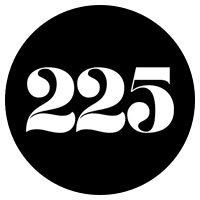Inspired by: Dave Hinson
One of Baton Rouge’s most instantly recognizable upright bass players, Dave Hinson, is now in his 19th year with the Baton Rouge Symphony. He also can be seen performing with Righteous Buddha, The Roebucks and his collective of public school students, Mr. Hinson & the Blisters. Here the bespectacled bassist talks Dave Brubeck, Baptist hymns and the necessity of the air guitar.
You grew up here, what did your parents do for a living?
Yeah, in North Baton Rouge. My parents owned a hardware store for a while right next to where Tony’s Seafood used to be, so we knew all of them.
|
|
Were they musical at all?
Dad was a bass singer. Mom had a beautiful alto voice and played piano. They sang in harmony a lot. Baptist hymns and country-style ’50s music. So I got an idea of what bass parts are supposed to do from my dad—“When the Roll is Called Up Yonder,” all that stuff. My dad went through a kind of spiritual conversion back then, and decided we were going to leave the church and have church at our house instead. A lot of those families that came played bluegrass music, so I got to see and hear that kind of living room picking.
Did you hear a certain song that made you think differently about music?
I was a big air guitar kid. I used to fake everything. I would fake all the parts on the record, you know. For the guitar parts I had my tennis racket. So I was faking it, but consequently, I was listening and learning to hear all the parts.
Was guitar your first instrument?
My sister started showing me some guitar around 10. She was into singer-songwriter ’70s stuff like Bread and Dan Fogelberg. This was right when I was starting to get into the school orchestra. I started on violin, and I didn’t read music for two years. I just picked up the parts and listened to the girl next to me, but I couldn’t read notes.
As a kid did you just think the upright bass looked cool?
I was getting tired of violin and not being able to read music, and I wanted to move to cello. That was my dream. But I think my teacher at the time thought I couldn’t handle it, and I was a tall kid so she said, ‘Why don’t you play the bass?’ And that lit me up! I thought, ‘I’ll totally play bass!’
What was it like the first time you picked one up?
My dad and I brought it home, and my sister Melinda was messing around in a Christian rock band then. She knew how parts fit together. The Eagles had just put out their live album and her jam was “Seven Bridges Road.” so we learned that together. The record had a skip in it, and because I was such an obsessive listener, I learned it with the skip. Then when I heard it later on the radio without the skip, that frustrated me.
It was a whole new version!
It really was. It was totally different, but that first summer Melinda really helped me get going.
As an instructor in the East Baton Rouge’s talented music program, is it easy to transfer some of your influences to kids, or are they off into their own things?
I’ve got 40 students, and they’re all coming from different places. Some have played piano since they were very small. Some play violin. Most are in their school orchestras, the LSU youth orchestra and take private lessons, so my job is to do something that is not a redundant service. I want to be able to put a pair of drumsticks in a violinist’s hands and have them find some beats so they can use different tools.
How important was it for you to be mentored as a musician?
I found out at LSU that that’s what people did if they were serious about it. I studied music with (jazz studies chair) Bill Grimes. And I would drive up to Nashville once a month and study with Edgar Meyer. I took a summer playing with (cellist) Dennis Parker. That type of study took the focus off of the instrument and put it onto the music.
Righteous Buddha is known for its modern jazz sound. How were you introduced to the genre?
I first started on bass is when The Stray Cats were coming out, and I liked that. That was one link to jazz for me, maybe, but my dad used to listen to Dave Brubeck. Our car didn’t have a stereo, so we had a jam box in the back with detachable speakers. And we’d crank up “Take Five” and “Three to Get Ready.” Dad had a live cassette tape of Brubeck. It was my job to reach back there and flip the tape.
Was it hard to find jazz records in Baton Rouge in the ’80s?
Yeah, yeah. It was mainly through a show called Saturday Night Sounds on WRKF. They would talk about the artists, so it was an education on people like Eddie Gomez and George Mraz. I still have a rack of those shows because my dad would tape them on 60-minute cassettes. I’m trying to figure out the best way to convert them all. Right now, I just want to protect them.
Heard any good indie music lately?
One of my neighbors is in Wilderness Pangs. I put him on the spot the other day and asked him for a CD. So I’ve been listening to that. I like all my friends. I love music that comes out of Baton Rouge, even if it sucks. ’Cause really, I don’t even think music sucks anymore. I just like it that people play. I’m caring less and less about what they’re playing.
|
|
|

